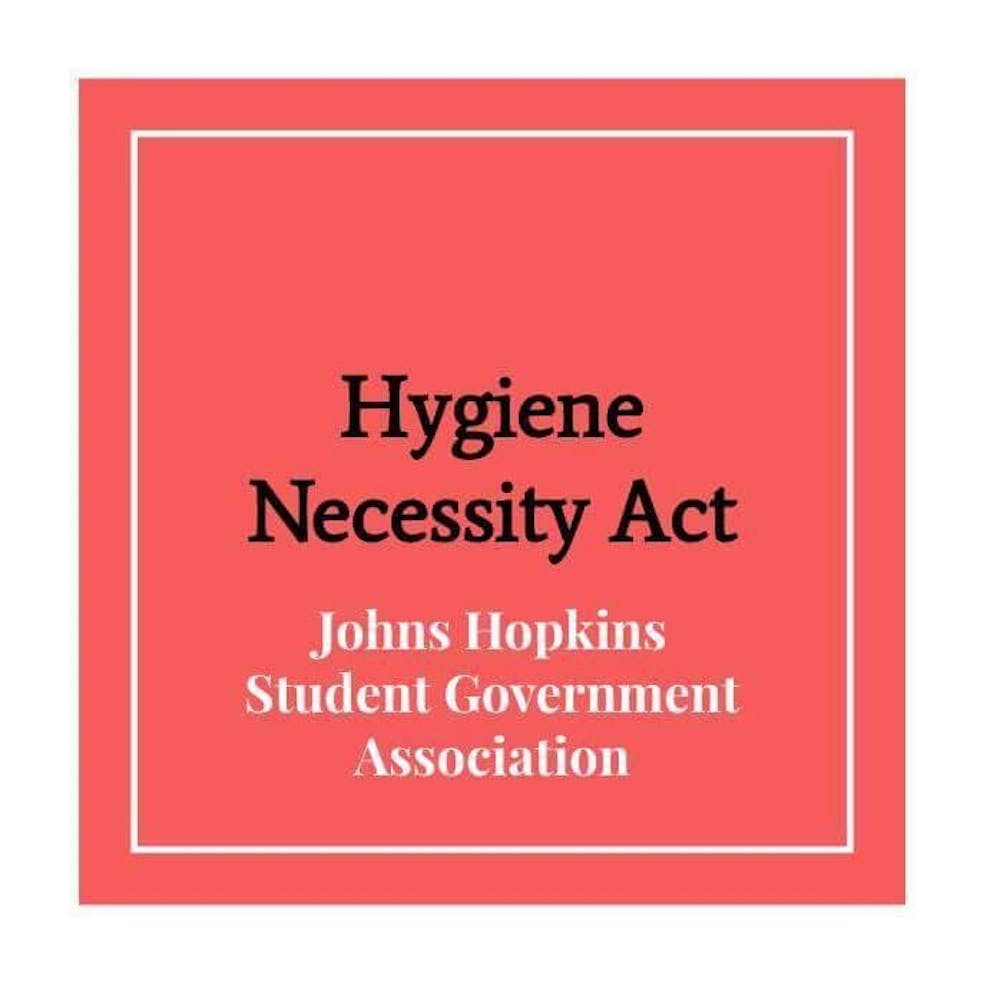Feminine hygiene products will be available in the women’s restrooms in Brody Learning Commons (Brody Atrium, Q-Level and M-Level), in the Fresh Food Café (FFC) and outside Nolan’s. In addition, students will be able to find them at front desks of Levering Café, Mattin Center and the Recreation Center.
At the start of every week, each desk will receive 20 tampons and 20 pads, and each restroom 28 tampons and 28 pads. The SGA will refill the desk locations once a week and the restroom locations every three days.
The bill was partly inspired by an article written for The News-Letter in 2014 titled “Campus feminine hygiene supply is inadequate.” In the article, Will Marcus criticizes the lack of selection and high cost of feminine products sold on campus. He also argues that the lack of accessibility and availability of hygiene products makes buying them an unnecessary and major inconvenience.
Doshi, who sponsored the bill, spoke about what prompted him to take action.
“I witnessed a massive need for hygiene products that was unaddressed,” Doshi said. “The free tampons and pads for students and faculty of the Johns Hopkins University will be there for a variety of reasons. Students are often in need of a tampon due to starting their period unexpectedly or forgetting their own supply at home. This is for students who need a hygiene product right away and serves as a contingency plan.”
Doshi emphasized that hygiene products are a necessity, not a luxury. He shared his experience speaking with others about the issue.
“After talking to many students, I learned that feminine hygiene was a huge issue and not enough was being done to make sure students had every resource available to them,” Doshi said. “As a result, I immediately talked to the student government, the director of the Health and Wellness Center, and many other deans and administrators to discuss this issue and see what can be worked out.”
Co-sponsor AJ Tsang elaborated on why the bill is necessary for Hopkins students and faculty.
“One of the main reasons we needed this bill passed was because of severely overpriced tampons and pads at local stores such as CharMar or CVS,” Tsang said. “By passing it, we alleviate a little bit of this financial strain.”
Zappone, who also co-sponsored the bill, offered her point of view on the plan’s enactment and its future.
“There’s been a lot of talk and little action around menstrual hygiene. We finally took a bottom-up approach and are excited to see how University officials respond,” she said. “Rushabh did a fantastic job communicating incrementally and slowly gaining support with staff leads at Brody, the Rec Center, and Dining.”
Zappone hopes that other University organizations will also help to bear some of the financial costs of the new initiative.
“Ideally, the Center for Health and Wellness or the Office of Student Life will throw some financial support behind this moving forward,” she said. “We made the statement and are excited to pioneer this over the upcoming semester, but the long-term duties that accompany this bill fall largely outside the domain of student government.”
Doshi addressed the issue of his plan’s sustainability.
“Hygiene products are very important and I would like to be the first to state that I do not believe this goes far enough to address the issue. That said, this is not a long-term solution.” he said. “The Hygiene Necessity Act is a huge step in the right direction. However, with that, I don’t think it fully tackles the issue in a sustainable manner. I am currently in talks with several administrators about the installation of tampon dispensers or ‘health’ vending machines.”
Tsang echoed Doshi’s sentiment, and hopes for increased cooperation with the University in the future to achieve sustainability with the initiative.
“Of course, what we still need to do is sustain the progress made by this groundbreaking bill,” Tsang said. “I’m really looking forward to seeing the Health and Safety committee work with the University to increase the volume of free tampons and pads in Hopkins buildings in future incarnations of this program.”
This bill serves as an intermediate solution, and the SGA will have the ability to renew the bill each semester. The brands provided will be Tampax and Always.
Doshi stressed that the bill still needs extensive support from administration and faculty in order to be put into practice.
“Our hope would be to eventually show how effective this proposal is by calling on administrators to take up this job and fund the tampons and bills,” Doshi said. “This is a massive need on campus and can help tremendously.”





